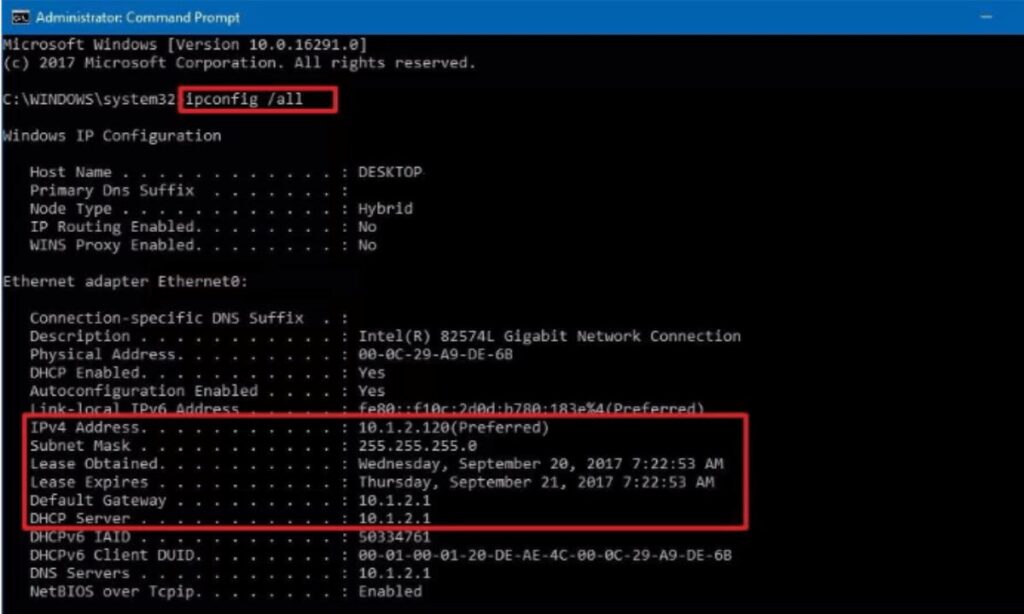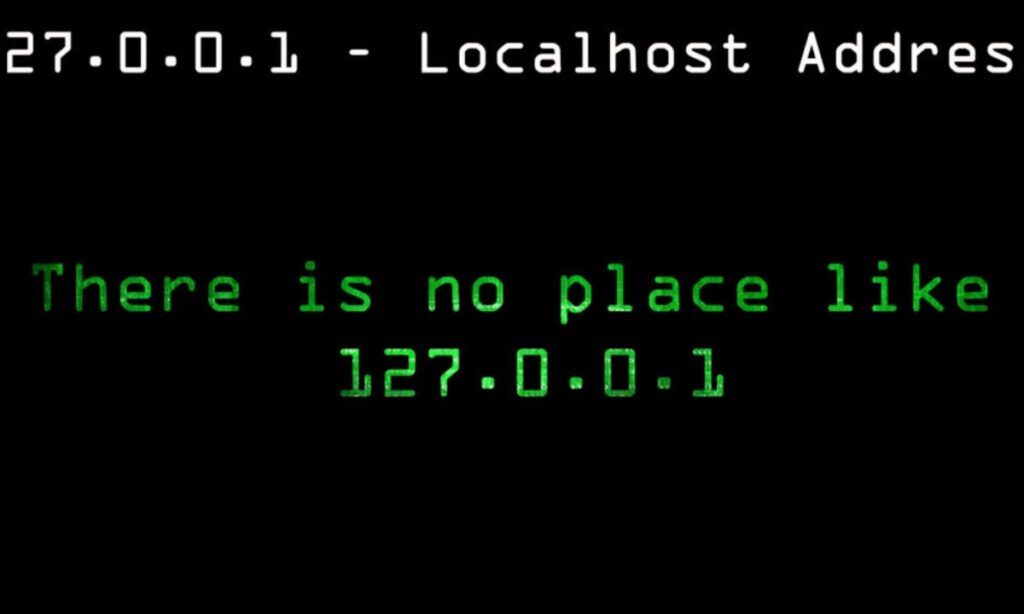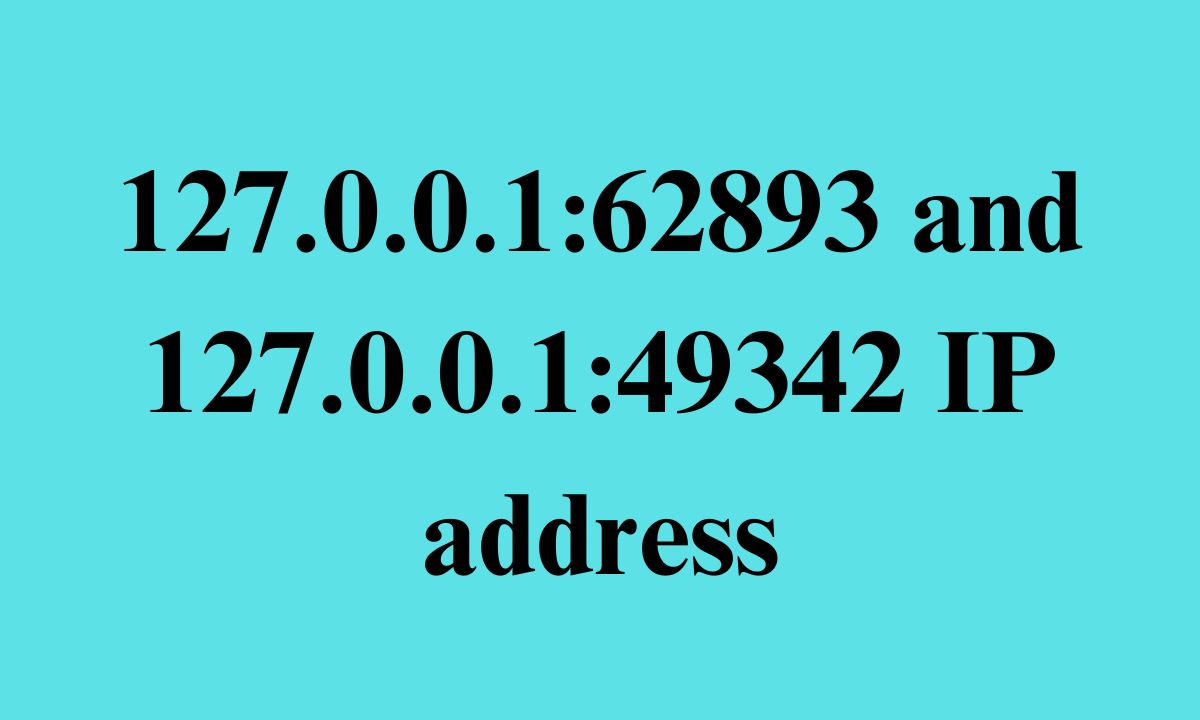When diving into the world of networking and web development, you’ll often encounter IP addresses that might seem mysterious at first glance. Two such addresses that frequently appear are 127.0.0.1:62893 and 127.0.0.1:49342.
These addresses play crucial roles in local network communications and testing, but their significance isn’t always immediately clear to newcomers.
In this overview, we’ll demystify these IP addresses, explain their purposes, and explore why they’re important for developers and network administrators alike.
Whether you’re troubleshooting network issues or setting up a local development environment, understanding these addresses will prove invaluable in your technical journey.
What do you mean by 127.0.0.1:62893?
The IP address 127.0.0.1 is a special-purpose IPv4 address. It is known as the localhost or loopback address. This address always refers to the current device you’re using. The number after the colon (62893) represents a specific port on that device.
Ports are virtual points where network connections start and end. They are software-based and managed by a computer’s operating system. Ports allow computers to easily differentiate between different kinds of traffic.
The combination 127.0.0.1:62893 means that something is connecting to port 62893 on the local machine. This could be a service, application, or process running on your computer. The port number 62893 is not a well-known or reserved port.
Similarly, 127.0.0.1:49342 refers to port 49342 on the localhost. Both these port numbers (62893 and 49342) are in the dynamic port range. Dynamic ports can be used by any application or service as needed.
Check the advantages of IP Address 127.0.0.1:62893

Using the localhost address (127.0.0.1) with specific ports like 62893 has several advantages:
- Security: Communications to localhost don’t leave your computer. This makes it harder for external attackers to intercept or interfere with the data.
- Speed: Since the data doesn’t travel through external networks, communications are very fast. This is useful for testing and development.
- Offline work: You can develop and test network applications without an internet connection. This is particularly helpful for developers working in environments with limited connectivity.
- Simplicity: Using localhost simplifies network configurations. You don’t need to worry about firewall settings or network address translation.
- Testing: It’s easy to test network applications on a single machine. This allows developers to identify and fix issues before deploying to a real network environment.
- Resource efficiency: Local communications use minimal system resources. This can be beneficial when running resource-intensive applications.
- Isolation: Services running on localhost are isolated from the outside world. This can prevent unintended interactions with external systems.
Using specific ports like 62893 allows multiple services to run simultaneously without conflict. Each service can have its own port, enabling clear separation of different applications or processes.
Read This Blog: How to Integrate Google Classroom 6x Games into Lesson Plans: A Step-by-Step Guide
Can we open port 62893 in public? Is it safe?
• Security concerns: Exposing a port to the internet can create a potential entry point for attackers. They might try to exploit vulnerabilities in the service running on that port.
• Unnecessary exposure: If the service on port 62893 is meant for local use only, there’s usually no need to make it publicly accessible. Doing so could unnecessarily increase your attack surface.
• Firewall configuration: If you do need to open the port, ensure your firewall is properly configured. It should only allow necessary traffic and block everything else.
• Regular updates: Keep any software running on the exposed port up-to-date. This helps protect against known vulnerabilities.
• Monitoring: If you open a port, monitor it closely for any suspicious activity. Use intrusion detection systems if possible.
• Authentication: Implement strong authentication mechanisms for any service exposed to the internet. This adds an extra layer of security.
How IP address 127.0.0.1:62893 works?

The IP address 127.0.0.1:62893 works through a combination of networking concepts. Let’s break it down:
- Loopback address: 127.0.0.1 is the loopback address. When a program sends data to this address, the data never leaves the device. It’s immediately routed back to the same device.
- Port number: The :62893 part specifies a port number. Ports allow multiple network services to coexist on a single device. Each service can “listen” on a different port.
- Socket: The combination of IP address and port (127.0.0.1:62893) forms a socket. A socket is an endpoint for sending or receiving data.
- Network stack: When data is sent to 127.0.0.1:62893, it goes through the device’s network stack. However, it never reaches the physical network interface.
- Routing: The operating system recognizes 127.0.0.1 as special. It routes this traffic back to the local machine without sending it to the network.
- Service binding: A service or application on your device can bind to port 62893. This means it’s listening for incoming connections on that port.
- Inter-process communication: Often, 127.0.0.1:62893 is used for communication between different processes on the same machine. This is a form of inter-process communication (IPC).
When you see 127.0.0.1:62893 in use, it typically means a program is communicating with another program (or itself) on the same device. This could be for various purposes, such as testing, local services, or backend processes.
How to fix the errors?
Errors related to 127.0.0.1:62893 or similar addresses can occur for various reasons.
Identify the error:
First, determine the exact error message. This can provide clues about the cause of the problem.
Check the application:
Ensure the application trying to use this address is functioning correctly. Restart it if necessary.
Verify port availability:
Make sure no other application is using port 62893. You can use tools like netstat to check port usage.
Firewall settings:
Check if your firewall is blocking the connection. Temporarily disabling the firewall can help identify if it’s the cause.
Restart networking:
Sometimes, restarting your network services can resolve connection issues.
Update software:
Ensure all relevant software, including your operating system, is up to date.
Check for conflicts:
If multiple applications are trying to use the same port, resolve the conflict by changing port numbers.
Examine logs:
Application and system logs can provide valuable information about the cause of the error.
Reinstall application:
If the issue persists, try uninstalling and reinstalling the problematic application.
Seek specific help:
If these general steps don’t work, seek help specific to your application or error message. Online forums or the application’s support channels can be valuable resources.
Frequently Asked Questions
What is the difference between 127.0.0.1 and localhost?
127.0.0.1 is the IP address for localhost. They refer to the same thing – the current device. Localhost is the hostname that resolves to this IP address.
Can multiple applications use 127.0.0.1 simultaneously?
Yes, multiple applications can use 127.0.0.1, but they must use different port numbers to avoid conflicts.
Is 127.0.0.1:62893 the same for all computers?
The IP 127.0.0.1 is the same for all computers, but port 62893 is not special. Different computers might use this port for different purposes.
Can I change the localhost IP address?
While possible, it’s not recommended to change the localhost IP. 127.0.0.1 is a standard that many applications rely on.
Is traffic to 127.0.0.1 secure?
Traffic to 127.0.0.1 never leaves your computer, making it relatively secure. However, local malware could still potentially intercept this traffic.
Wrapping up
Understanding 127.0.0.1:62893 and similar IP:port combinations is crucial for anyone working with network applications or services. These addresses play a vital role in local development, testing, and certain types of software functionality.
The localhost address (127.0.0.1) provides a secure, fast, and isolated environment for applications to communicate within a single device. This is invaluable for developers, system administrators, and even everyday users running various software.
Specific ports, like 62893 or 49342, allow multiple services to coexist on the same device without conflict. They provide a way to direct traffic to the correct application or process.

Amelia is a skilled SEO expert with a strong focus on content writing, keyword research, and web development. With a dedication to delivering results, she helps businesses optimize their online presence and drive organic growth.
Her expertise ensures that clients stay ahead in the ever-evolving digital landscape












